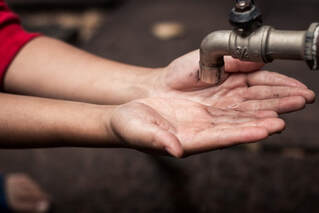|
by: Jordon Horton  Ruth Greenspan Bell Ruth Greenspan Bell The impacts of climate change are being felt with many lacking the necessary infrastructure to protect against drought and floods. The United Nation acknowledges this need for a call to action. Nearly 2.3 billion people are facing water stress with over 160 million children exposed to severe droughts. Data showing that more will experience drought and water resource issues has led to a big shift to climate change adaptation. Heavy investment in water and sanitation is a significant factor affecting health, the environment, and economic growth. In combating climate change, many developing countries are faced with difficult decisions surrounding management of their resources and interconnectivity with the global economy. Ruth Greenspan Bell is a Public Policy Scholar at the Woodrow Wilson International Center for Scholars who has been looking at this climate dilemma. Immediate change could be achieved in regions with high fossil fuel resources but requires the price of intensive extraction. Following global recommendations of protecting forests and other environmental systems, developing countries are then left to wait for the financial support of developed countries. Rapid shift in the United States’ commitment to upholding climate agreements across administrations produces a lot of a risk for developing countries to wait for wavering support. If developed countries could use the extraction of resources from developing countries for their economic development, why can’t these countries use their own resources to support themselves? Wilson Center NOW hosted Ruth Greenspan Bell during which she further discusses the crossroads of developing nations to combat climate change versus increased development of fossil fuels. COP 27 is will host key discussions on the governance for integrating resource management with climate change.
0 Comments
Leave a Reply. |
Archives
January 2023
Categories |

 RSS Feed
RSS Feed
